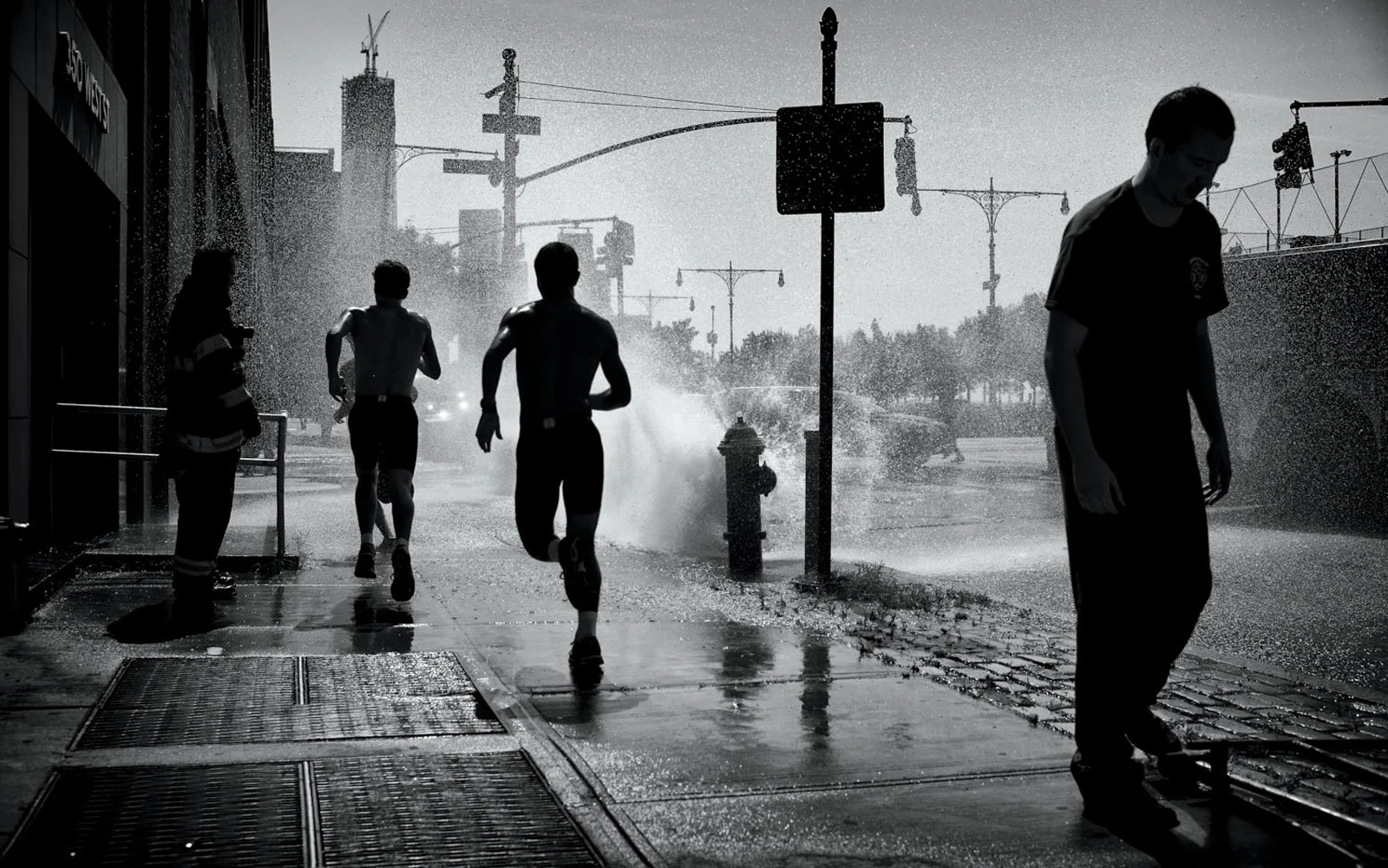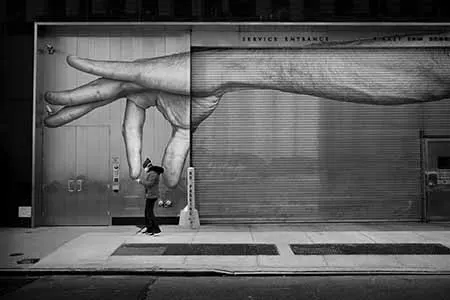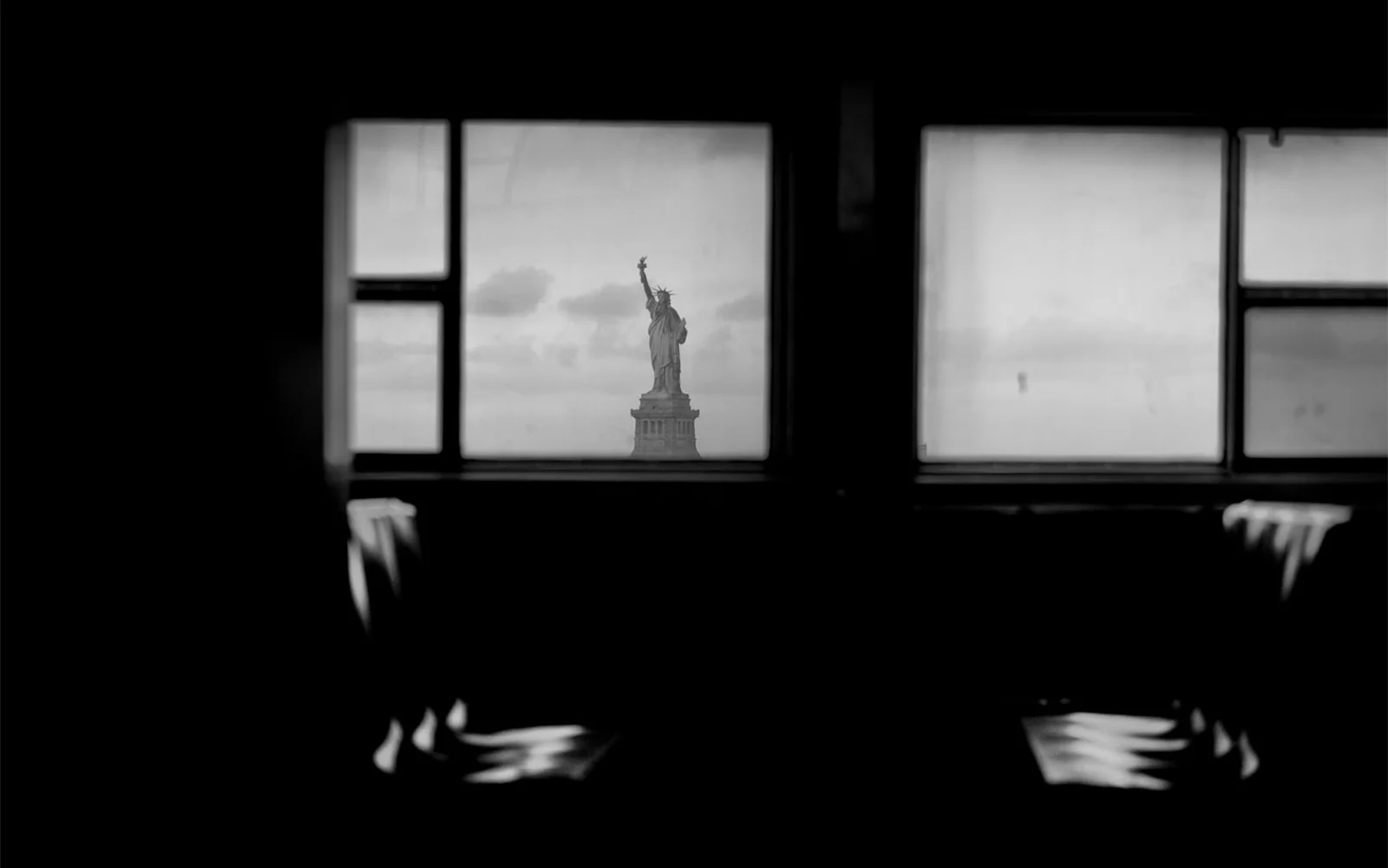Short profile
The British-born, New York-based photographer has been documenting the rapid changes on the streets of New York City for over 25 years. He has photographed global stars and captured historic moments such as the September 11 terrorist attacks for clients including The New York Review of Books and The Guardian.
Penman's distinctive style, versatility, and dedication to his craft have earned him prestigious awards and exhibitions, as well as the honor of being named one of the "52 Most Influential Street Photographers" alongside industry legends such as Henri Cartier-Bresson and Sebastião Salgado. His debut book, "STREET", was the #1 new release on Amazon for street photography and has since been a bestseller and exhibited at MOMA in New York.

5 QUESTIONS TO PHIL PENMAN
How did you get to the usage photography as a medium for your expression?
It’s funny how life works out. Originally, I wanted to be a sport teacher and needed a second subject for my studies. My dad was a photographer and we had a darkroom at home so it made sense. It soon became clear I loved photography more than the sports studies.
My father bought me my first ever camera. A nikkomat 35mm film camera and I used a Weston light meter, this was the best way to learn. Who would have thought that years later a camera would enable me to see the world, meet influential business people like Bill Gates or drink cups of tea with actors like Christopher Reeve aka Superman and see the beautiful mountains of Kashmir.
The camera not only allowed me to see things differently, but also allowed me to experience things in life, in a way that might have not been possible before.

Fire hydrant shooting water while people are moving besides it in black and white - Photo: Phil Penman.
What is your fascination about black and white?
It was in the darkroom that it all started. It’s like a bug that you catch and cannot get rid of. Shooting the images, developing the film and then seeing the final result on paper. Any one thing you do could influence the outcome. This was the beauty of it.
I went into the workforce, shooting for commercial clients and agencies predominantly in color. However, sometimes when your passion becomes your job, it takes the fun out of it. This isexactlywhathappenedto me.
To find my passion again, I bought myself a Leica. Started editing everything in black and white and this became my separation from work. It was this that brought back my love of photography.
I’ve found I shoot my best work when I’m having fun with it. So it came to be that most of my work is black and white.

A giant hand painted on a wall holding a real man in black and white - Photo: Phil Penman.
How did street photography change over the years?
I’m not sure if it has, it's just what makes it out there into the popular world. Social media has definitely influencedpeople's work. We find ourselves shooting more for likes than just great work, that will stand the test of time.
I think if you can stay true to yourself and just shoot work that keeps you motivated you can’t go too far wrong.
What does New York mean to your work? Could you imagine working in any other city?
I’ve been fortunate enough that the camera has taken me all over the world. I do find that New York speaks to me from a photography standpoint. However, I love shooting in Paris, Rome, and London as they all have their own unique vibes.

The Statue of Liberty seen through a small window in black and white - Photo: Phil Penman.
How do you chose your lab, do you have any tips to find the perfect lab for your printed images?
A good print is just as important as the image you are taking. It’s pointless if you take all this effort going out in harsh weather to get the perfect shot, spend time on the edit only to have a poor-quality print. It’s the end result and what people see!
It’s very important that you have a good relationship with your printer and work together to get the end result perfect.




